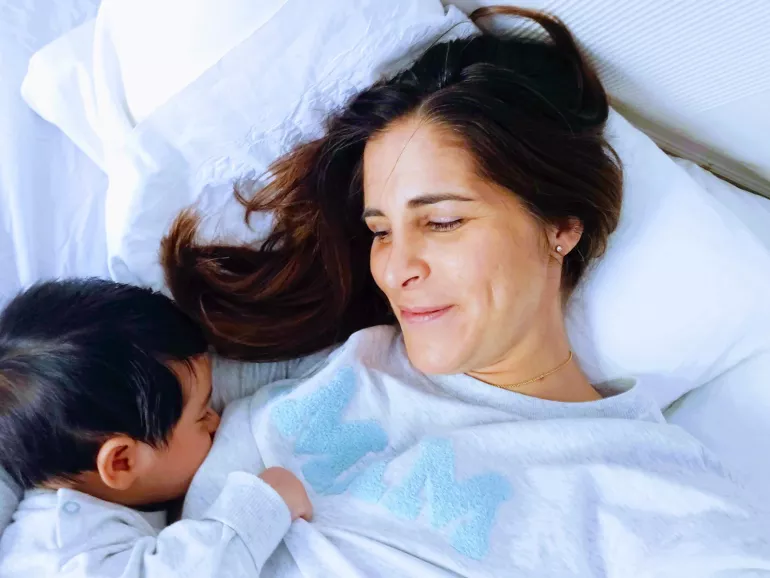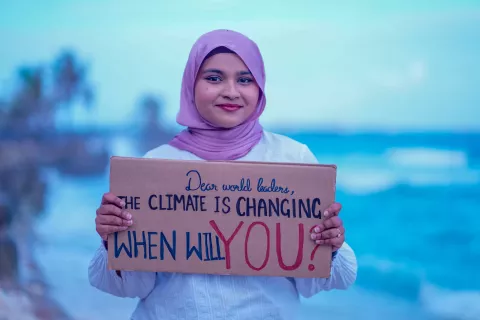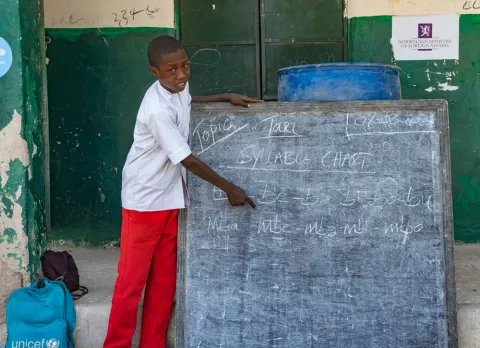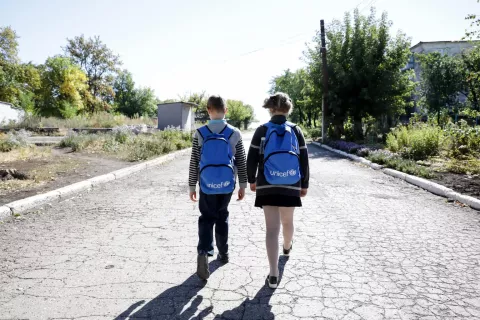Dear Leo,
It has been six months since you came into this world like a whirlwind, turning your dad and me into confused-but-never-been-happier parents. We were warned many times about how life would change after your arrival, but it wasn’t until that magical moment when we held you for the first time, that we could fully comprehend that your birth will remain the most life-changing event of our lives.
Now that you’re here, there are countless things that I would like to change so that your generation inherits a better world. In fact, my desire to make a small contribution brought me to work for UNICEF in several countries, often under challenging circumstances. Many of the changes I would like to see are beyond my reach. However, there is one thing I am determined to influence even more now as a parent – and that I hope one day you will too.
The change I am referring to, is addressing an underground stream that has slowly but steadily contaminated society through centuries, across generations and geographies. A stream that continues to this day to infiltrate most, if not all, facets of social inequalities and injustice. This aquifer runs so deep and wide that despite efforts to eradicate it, today it is still both omnipresent and invisible at the same time.
Have you guessed Leo?
The issue I am talking about is a gender imbalance.
Setting the terms of equal (or at least fair) co-parenting requires a constant loop of reflection, dialogue, and course correction.
Gender bias and stereotypes start being modelled at home, and it is from home I am writing this letter today, Leo. At the moment we knew about your upcoming arrival, I promised myself I would work with your dad to ensure that you grow up in a family where both mum and dad are equally involved and where co-parenting means just that: co-sharing, co-shouldering, co-bearing both the joy and responsibility for you, our new arrival.
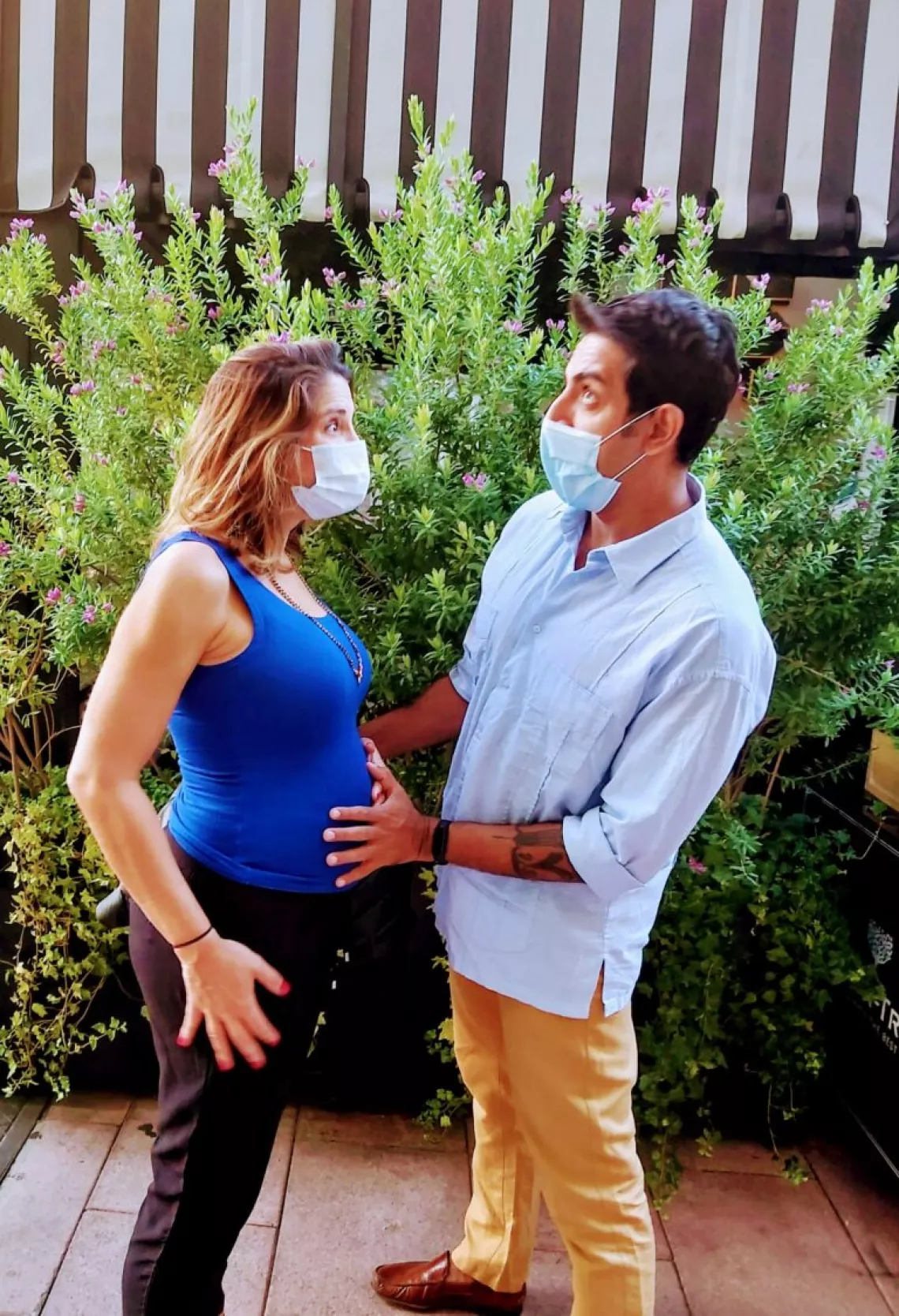
But I must confess, Leo, this has proven more complex than I initially thought. Caring for a baby, I have come to realize, is still primarily regarded as a woman’s affair. Partly dictated by the biological realities of giving birth. Partly due to intergenerational inertia: since mums, grandmas and other female community members have more acumen on caring for babies than men, they tend to be on the frontline of supporting and advising new parents.
And the cycle perpetuates. I can see the same stream running in the veins of younger generations already. While all the children around us are equally excited and they take turns to have fun with you, girls are still more inclined to be involved in baby duties beyond playing. This is not context-specific: with a Spanish mum and an Indian dad, you come from a multicultural background, yet I see across cultures similar patterns of mothers being called in more often when decisions about the little ones are to be made.
Thus in this short time together, I have learned that the gender imbalance aquifer can also penetrate the foundation of our incipient family. Things may become easier as we transition from this phase where I am your main lifeline because of breastfeeding. But I also know that the early moments matter, and that if we don’t set the right foundation from the beginning, we may slide from our co-parenting commitment in the blink of an eye.
I hope you will not get me wrong, Leo. Your dad has been constantly by my (our) side, from the day we learned you were on the way, to the day he held my hand tight while I pushed for hours to get you out of my tummy. He has been on top of the moon since you arrived, dedicating time, energy, and affection to you. He has proactively sought ways to share the load during the early weeks, taking charge of nappy-change and leading your bathing. Your uncles are incredible parents and great models who have been heavily involved in their children’s upbringing.
I have learnt, however, that setting the terms of equal (or at least fair) co-parenting requires a constant loop of reflection, dialogue, and course correction. And that even when you are aware of gender bias in family roles, there may be invisible forces that will constantly confuse what is determined by biology and what is due to social norms.
Course correction must be done by both sides. The tempo of breast-feeding mums, for example, soon align with the babies’. As a result, it is easy for mums to quickly take the lead in establishing routines for the baby, limiting the dad’s space to contributing to decision-making. These decisions may be small in the beginning (when to put her to sleep, which nappy to use), but will grow bigger in scope and complexity so fast that “soon will be late” to bring the dad to the driver’s seat.
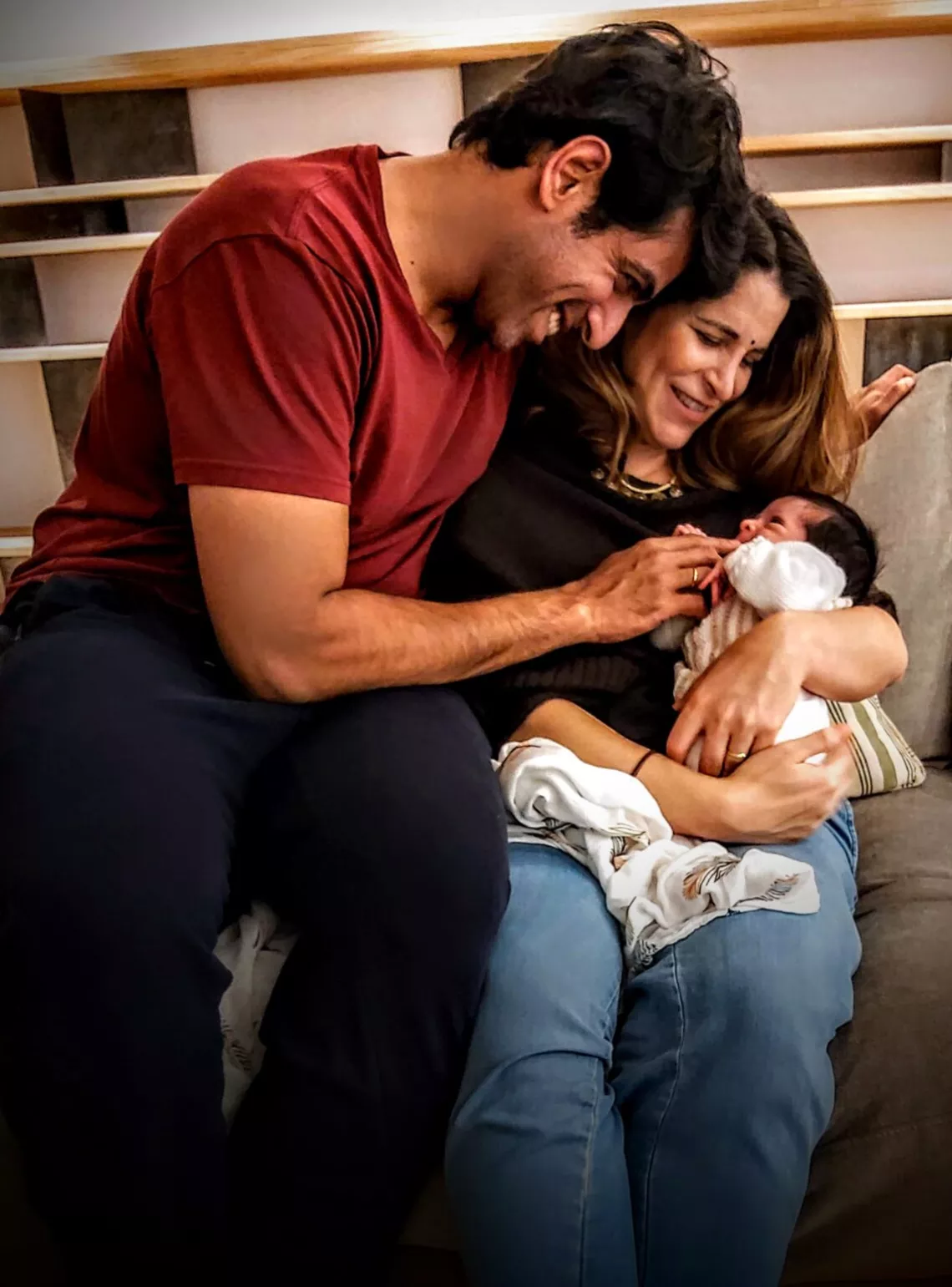
Maybe one day you will become a parent, Leo. If so, I hope by then we will have shown you that equal co-parenting is possible. Maybe you will never become one, that will be your decision – and we will love you just the same. In either case, I sincerely hope you will grow seeing your girl classmates and female co-workers as your equals, that you will be able to identify gender biases, and that you will never remain silent in the face of discrimination.
We are at the beginning of this beautiful journey together, Leo, and your dad and I have only seen glimpses of both the joy and challenges of parenting. May this adventure become an opportunity for the three of us to contribute our grain of salt so that families stop preassigning roles based on gender, and start regarding men and women, girls and boys, as beings with equal potential and worth.
Love you always,
Mamá
Soledad Herrero is the Chief of Child Protection for UNICEF India. Her passion for child protection now has a personal dimension which makes her work ever more rewarding.

